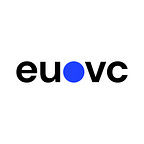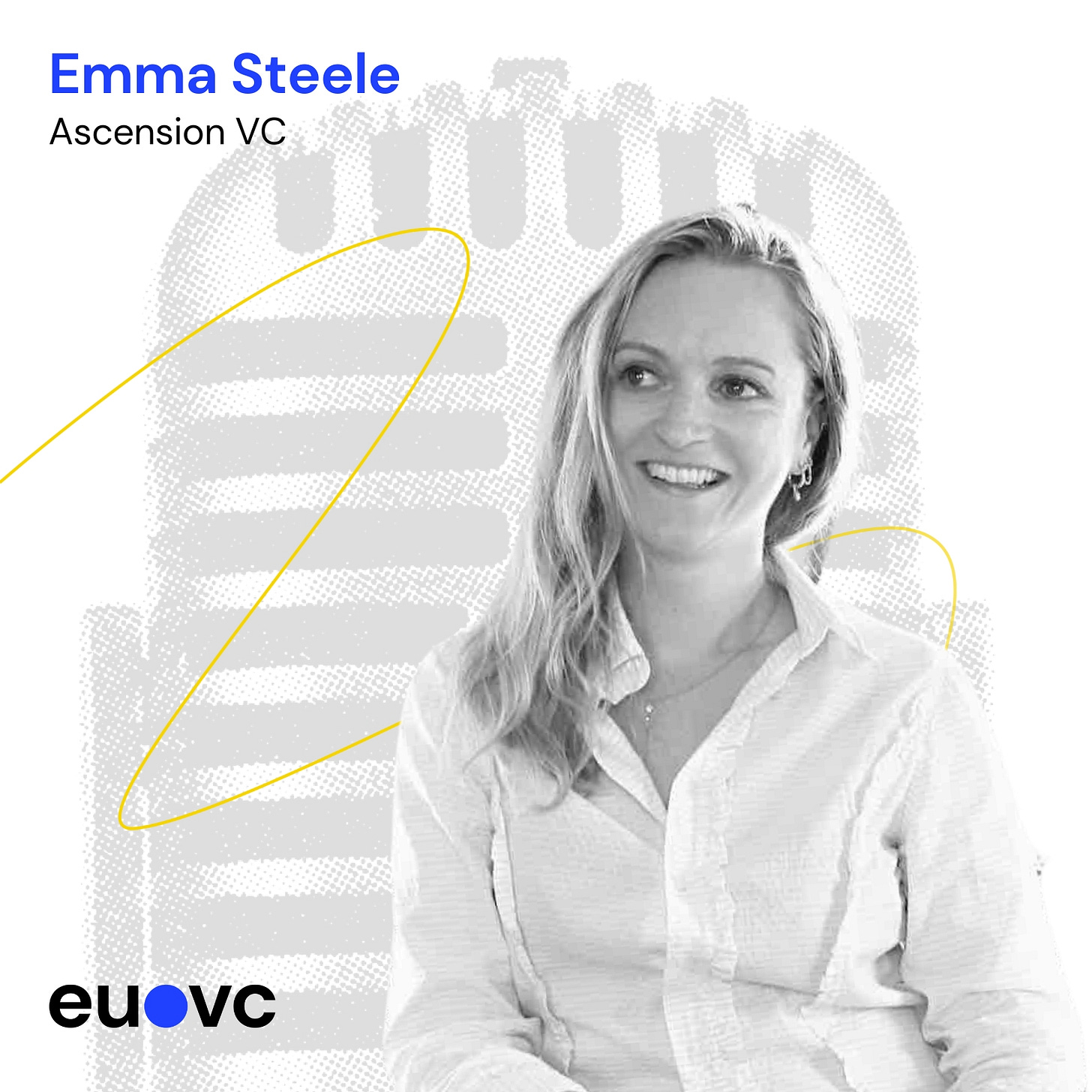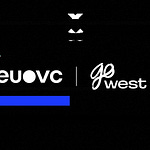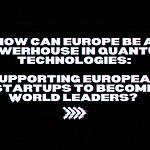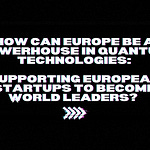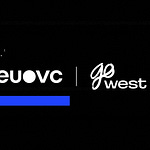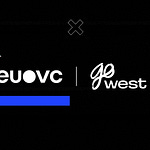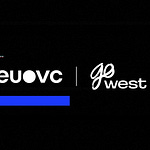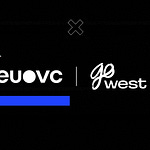We are overjoyed to extend a warm welcome to Emma Steele, a standout Partner at Ascension's Impact Fund. Ascension VC is a venture capital firm that focuses on Seed-stage investments, with a unique angle: creating resilient societies by endorsing impact-driven founders. These founders are not only driving commercial value but are also on the exciting journey to potentially becoming the next impact-oriented industry leaders, or as we like to call them, 'impact dragons'.
Ascension VC boasts an impressive portfolio of more than 180 companies. Emma's leadership and discernment have led to notable investments in companies that are making waves in their respective industries. To name a few; Wagestream, Credit Kudos and Tembo
At Ascension VC, we believe in the power of creating a resilient society through the backing of impact-driven founders. Emma Steele is a testament to this belief, showcasing her leadership through her impressive portfolio of investments.
TOC // Scroll ⏬ to full article on our core learnings below 👀
Emma Steele's Journey into Venture Capital
The Confluence of Profit and Purpose
Fundraising: A Game of Tailored Messaging
The Impact and Returns Conundrum
Impact Investing: A Lens of Intent
LP Expectations and Impact Reporting
Addressing the Critiques of the Venture Capital Business Model
Managing Portfolio Companies: A Delicate Balance
Introducing “No Edit Video Creation” by Rizzle
Rizzle redefines video creation! In contrast to regular editing tools, Rizzle empowers users to create incredible videos without editing expertise. Nevertheless, it doesn’t compromise creativity. Users can edit text and replace media while maintaining control over the final generated video.
Rizzle’s No Edit Video Creation capitalizes on AI to automate tasks and edits on text snippets, media selections, video layouts, media preparation, animations, transitions, and more. It ensures users focus on the final touches and creativity, while Rizzle takes care of all the manual aspects of video creation.
Emma Steele's Journey into Venture Capital
Emma Steele, an influential figure in the venture capital world, had quite an intriguing journey into the industry. Her journey into venture capital was largely shaped by her desire for social impact, a drive that manifested itself early in her ambitious goal of becoming the United Nations General Secretary at the age of 12.
"I wanted to be UN General Secretary, age 12, probably 12 to 15. Very ambitious, but it led me to do Philosophy, Politics, Economics at Warwick."
With a clear focus on social change, Emma left France to immerse herself in her second culture, England. She pursued Development Economics, but ended up in banking accidentally, a move necessitated by the need to repay a Master's loan quickly.
From Banking to Impact Venture
Despite the detour into banking, Emma never lost sight of her desire for social change. In 2016, she made a decisive move, leaving her banking job to delve into the world of impact venture. She spent some time consulting for charities, aiming to make them more financially sustainable. This experience laid the groundwork for her entrance into the venture capital world.
"I quit in 2016 to start thinking about advancing social change. Did a little bit of time doing consulting for charities to make them more financially sustainable and that's how I started thinking about impact venture."
The Unexpected Route to Venture Capital
Transitioning from working with charities to venture capital may seem like an unconventional path, but Emma shines light on how these seemingly disparate fields are interconnected.
"A few of our LPs are foundations themselves and we have this debate all the time because they straddle both worlds. What I found working directly with those charities is that often, the need to get debt was driven by the existing business model of the charity being unsustainable."
She further elaborates that her work with charities often involved transforming their business models, making them more financially stable, and less dependent on local authority funding. This process often involved making investments to open up new trading avenues.
The Confluence of Profit and Purpose
Emma's work in venture capital reflects her belief in the symbiosis of profit and purpose. As she navigated the charity sector, she noticed a widespread negative perception of profit, which didn’t align with her worldview. This drove her to explore the world of tech-for-good investing at the early stages, where she found few players.
In the charity world, there's a little bit of a bad rep for the concept of profit. And I didn't like that. So I started to look into who was doing tech for good investing.
Her exploration led her to Ascension VC, an investment company with a remarkable portfolio. Even though Ascension wasn't defined as an impact investor at the time, Emma saw potential. She reached out to them, marking the start of a new chapter in her venture capital journey.
Fundraising: A Game of Tailored Messaging
According to Steele, the fund's mission to invest in tech-enabled solutions that tackle social inequality was initially presented in a factual manner. However, they soon realized the importance of bringing positivity and excitement into the narrative.
"We started with being quite factual about what the fund was doing...however, although some LPs resonate with that, it was difficult to convey the emotional empathy that some LPs need in order to go on a journey with you."
The pivot in messaging, towards creating more resilient societies, was not only more appealing to LPs but also reduced questions about the trade-off between financial returns and impact.
Understanding the Investor: Who Resonates More?
When it comes to investor profiles, Steele noted that different stakeholders resonate differently with the fund's messaging. While foundations align with the mission, family offices and fund of funds tend to require a more emotionally-invested narrative. She highlights the importance of enabling individuals within these organizations to become champions for the fund, especially when navigating through more formal processes and internal committees.
"...it always starts with, with an individual being the champion, even if - especially if - it's an individual in a wider organization, they need to be enabled to be the champion for your fund internally."
The Impact and Returns Conundrum
Steele also addressed the assumptions around the concept of impact and its relation to returns. She believes that the assumption of low returns when hearing the word 'impact' stems from its close association with philanthropy. However, she urges the need for understanding the underlying thesis and the actual work being done within the impact space, instead of making quick assumptions.
"...the concept of impact was, is very closely linked to philanthropy in people's mind. And philanthropy is giving money away. How can you even fathom returns?"
Don't miss out on these insights and more in the latest episode of EUVC featuring Emma Steele, Ascension VC. Tune in to delve deeper into the world of VC fundraising and impact investing!
Impact Investing: A Lens of Intent
Emma Steele, a seasoned venture capitalist at Ascension VC, strongly champions the concept of impact investing. To her, impact investing is not just another investment strategy, but rather a focused intent or lens through which investments are made. Her conviction stems from a belief in inclusive capitalism, which she sees as an effective tool for driving change.
Impact is just a lens. It's an intent... doing investing with a specific intent or a specific lens... I'm a big, big, big believer in inclusive capitalism.
She is also intrigued by the fact that only impact firms seem to openly discuss the 'theory of change'. Other firms, she believes, also operate with their own theories of change, even if they do not explicitly state them.
All the other firms also have a, if not a theory of change, then at least a theory and how you've then fit into that change.
The Intersection of Impact and Commercial Value
Since establishing Ascension VC's first impact fund, Steele has made efforts to align the firm's impact framework with its investment strategy, thereby intertwining social impact with commercial value. The intent, she explains, is to create both social and commercial value from investments, a model that she believes differentiates impact investors from more generic thematic funds.
The theory of change is as much a view of the world and what we want to achieve from a kind of social impact perspective, but actually what kind of value we can create for our investors down the line.
LP Expectations and Impact Reporting
Steele acknowledges the increasing interest in impact and sustainability investing, but also notes the increased reporting requirements that come with it. Often times, the critique is that the metrics are in the way of founders i nthe early stage, but contrary to this view, Emma underscores the strength of discussing Impact KPIs with founders from the early stages, as it not only gauges their engagement but also validates the coexistence of scale impact and returns.
Interestingly, Steele notes that a financial failure does not necessarily equate to an impact failure, providing a refreshing perspective on evaluating venture success.
It's interesting because a failure financially isn't necessarily a failure from an impact perspective.
Addressing the Critiques of the Venture Capital Business Model
The traditional venture capital model has often been criticized for its perceived 'pump and dump' approach. Critics argue that venture capitalists are quick to move onto the next investment opportunity once a portfolio takes off, leaving behind what are often referred to as 'zombies'. This critique becomes even more pronounced when discussed within the context of impact funds, as Limited Partners (LPs) usually expect a higher degree of responsibility towards the portfolio companies.
This critique is not entirely without merit. However, it's critical to acknowledge that the 'pump and dump' characterization is a simplification of a complex scenario and not entirely representative of the nuances involved in venture capital management.
Managing Portfolio Companies: A Delicate Balance
Emma Steele and her team at Ascension VC believe that failure can be substantially mitigated, if not entirely avoided, with the right approach to relationship management with portfolio companies. This involves a careful allocation of time and effort, a commitment to an initial investment period of around 18 to 24 months, and a readiness to scale back formal roles once a company has secured a series A funding round.
There is a keen focus on supporting portfolio companies that may need more time or are facing challenges. This role is primarily handled by the portfolio director, who acts as an extension of the fund and a staunch defender of the portfolio companies.
The hands-on approach and the commitment to providing ongoing support differentiate Ascension VC from many other venture capital funds. This reflects a broader trend of impact-focused funds aligning their strategies more closely with the expectations of socially responsible LPs.
Emma’s shout-out 💌
In the episode, Emma gives a heartfelt shout-out to Big Society Capital who has been with them since the inception of their venture. Big Society Capital has shown unwavering support for Ascension VC, even through periods of testing and shifting investment strategies. They have fearlessly journeyed into the unknown alongside Ascension, fully embracing the potential of their impact fund.
"They've been an unwavering champion of Ascension from the beginning and believing in impact as a driver of value. And for that, I think they're an exceptional LP to have for any impact fund out there."
Emma’s Three Biggest Learnings
Through our conversation, Emma shared some critical insights into her method of decision-making, the importance of gut feeling, and her unique approach to sales. We also delved into the importance of interrupting constructively in conversations. Here are the core insights from this engaging episode:
Trust, understand, and embrace your gut feeling: Emma advises that we should not ignore our gut feelings. Instead, we should seek to understand and embrace them. She believes that gut feelings are not just a separate list of reasons but rather a compounding effect of different interactions and experiences.
"... when you build conviction on a founder market business model, you do it as a compounding effect through the different interactions that you've had in the process of getting to know the founder and the business."
Learn to be good at sales: Emma suggests that you don't necessarily have to like sales, but it's critical to keep going and learn to be proficient at it.
Interrupt constructively: Emma believes it's better to interrupt too much than not interrupt enough. This could help in gaining critical insights and driving a conversation forward.
One of the most intriguing aspects of our conversation was when we discussed the process of unpacking gut feelings. Emma shared her method, describing it as not a separate list of reasons that make up the gut feeling, but a compounding effect through various interactions.
"...the entire point is to believe in the upside story of a problem, of the depth of a problem, of the size of the market, and to understand and see enough signals around that to de-risk that story. If those signals, through those compounding interactions, are more green than orange and red, then you know..."
Emma also discussed the importance of documenting decisions to improve as an investor. With her partner at Ascension VC, they keep each other accountable through a scoring framework and maintain a record of all the decisions taken to the IC:
Formally list all decisions taken to IC and track them.
Build a shadow portfolio for deals with strong sponsorship.
Establish a scoring framework and keep a record of initial thoughts.
🔫 The Quickfire Round 🔫
What advice would you give your 10 year younger self?
Don't be scared of taking a wrong turn. There are no wrong decisions when you dunno where you're going. I would also say: your sensitivity is your superpower. And don't take your humility as a weakness. It's part of your style and identity.
Question 2: What are your top tips for emerging VCs that are fundraising?
Rework your vision and your narrative regularly, because you rarely get it right first time and you have to test it often with multiple stakeholders.
Warm introductions, sadly, are probably our biggest source of conversion. So always try to seek out first or second degree connections to a target. Even LPs who end up rejecting you or say or saying “not now can” end up being champions for you. So do keep them very close and find people in your space and on the fundraising journey with you that you can trust.
Question 3: What's the most counterintuitive thing you've learned since you've been in venture?
When I started Venture it was “profits are overrated”. But that's not what everyone’s saying these days.
So the second thing is failure and knowing how to failand when to fail is good.
The third thing is a decision made fast with 60% knowledge is better than a decision made very slow with 90% knowledge.
And final thing: your inbox is your biggest enemy.
We’re going to How To Web again this year - coming?
Hit us up 📩 and get your investor tickets at a 15% discount by using the code HTW15EUVC


